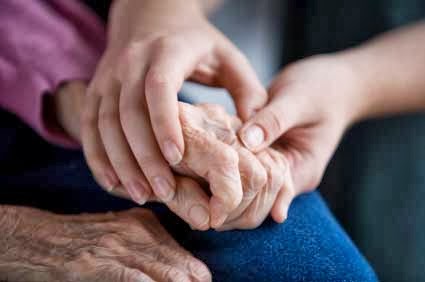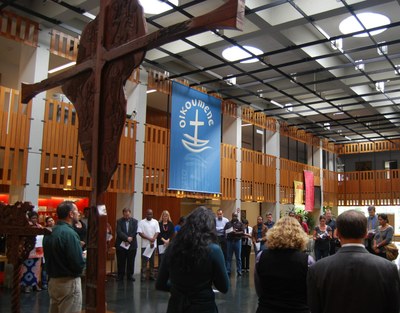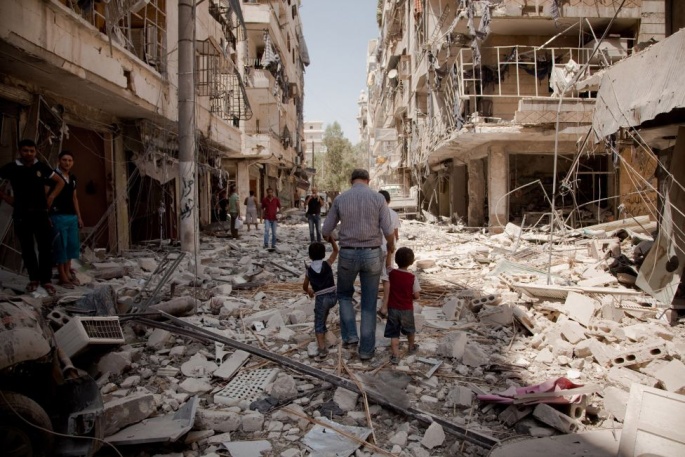
Apr 24, 2016 | Non categorizzato
 “We had said we wanted to see only Jesus in our neighbour, to deal with Jesus in our neighbor, to love Jesus in our neighbor, but now we recall that a neighbor has this or that defect, has this or that imperfection. Our eye becomes complicated and our being is no longer lit up. As a consequence, erring, we break unity. Perhaps that particular neighbor, like all of us, has made mistakes, but how does God view him or her? What really is that person’s condition, the truth of his or her state? If our neighbor is reconciled with God, then God no longer remembers anything, he has wiped out everything with his blood. So, why should we go on remembering? Who is in error at that moment? I who judge or my neighbour? I am. Therefore I must make myself see things from God’s viewpoint, in the truth, and treat my neighbor accordingly, so that if, by some mishap, he or she has not yet sorted things out with the Lord, the warmth of my love, which is Christ in me, will bring my neighbor to repentance, in the same way that the sun dries and heals over many wounds. Charity is preserved by truth, and truth is pure mercy with which we ought to be clothed from head to foot in order to be able to call ourselves Christians.”
“We had said we wanted to see only Jesus in our neighbour, to deal with Jesus in our neighbor, to love Jesus in our neighbor, but now we recall that a neighbor has this or that defect, has this or that imperfection. Our eye becomes complicated and our being is no longer lit up. As a consequence, erring, we break unity. Perhaps that particular neighbor, like all of us, has made mistakes, but how does God view him or her? What really is that person’s condition, the truth of his or her state? If our neighbor is reconciled with God, then God no longer remembers anything, he has wiped out everything with his blood. So, why should we go on remembering? Who is in error at that moment? I who judge or my neighbour? I am. Therefore I must make myself see things from God’s viewpoint, in the truth, and treat my neighbor accordingly, so that if, by some mishap, he or she has not yet sorted things out with the Lord, the warmth of my love, which is Christ in me, will bring my neighbor to repentance, in the same way that the sun dries and heals over many wounds. Charity is preserved by truth, and truth is pure mercy with which we ought to be clothed from head to foot in order to be able to call ourselves Christians.”
Source:Chiara Lubich, Essential Writings, New City Press, New York 2007, pp. 100-101
Apr 21, 2016 | Non categorizzato
Apr 20, 2016 | Non categorizzato
Promoted by the Youth for a United World, “High resolution – Rule of fire for Peace” will be a dedicated peace day. This event began in Portugal in 2002, and since then has been held on 1 May biannually. It has always involved thousands of Portuguese youths, and also those of various nationalities. In 2016, “high resolution” invites the youth to become protagonists of fraternity and builders of peace without compromises. Through music, choreographies, testimonials and Expo events, they will present the actions that have been launched, with the aim of furnishing concrete answers and giving suggestions on how to proceed in this direction. This year, the programme will also include various workshops that will discuss the theme of peace in various fields such as ecology, art, intercultural dialogue, economy, sports, communication, science and technology. This day is part of the international United World Project that targets universal brotherhood as the paradigm of human relationships, promoting the identification, preparation and dissemination of actions that have already started at global level, in favour of fraternity. Invitation for 1 May 2016

Apr 19, 2016 | Non categorizzato
 Without falling into the trap of ideological self-contained reminiscences, we shall be asking what has contributed to the idea of a “European identity”, whether it be conceived as an existing identity or as one still coming into existence, in what terms it can be described, and what has given rise to the ideal of European unity that can then be expressed in political form. Moving one step further, we shall attempt to draw, out of the historical experience of Europe, values and ideals that could enable us to surmount the present crisis and find a way forward into the future. Are there any examples and actual projects that are putting into action these values and ideals? Within a broad-minded vision of secularism, what could be a welcome contribution from churches and other religious communities? And, in this context, what is, or could be, the role of Switzerland?
Without falling into the trap of ideological self-contained reminiscences, we shall be asking what has contributed to the idea of a “European identity”, whether it be conceived as an existing identity or as one still coming into existence, in what terms it can be described, and what has given rise to the ideal of European unity that can then be expressed in political form. Moving one step further, we shall attempt to draw, out of the historical experience of Europe, values and ideals that could enable us to surmount the present crisis and find a way forward into the future. Are there any examples and actual projects that are putting into action these values and ideals? Within a broad-minded vision of secularism, what could be a welcome contribution from churches and other religious communities? And, in this context, what is, or could be, the role of Switzerland?
Programme
A panel discussion, with audience participation, with:
- Rev. Dr Olav Fykse Tveit, general secretary of the World Council of Churches
- Mr Eric Ackermann, a member of the Jewish community in Geneva
- Ms Gaelle Courtens, a journalist associated with the Federation of Protestant Churches in Italy and the ‘nev-notizie evangeliche’ Press Agency
- Mr Pasquale Ferrara, a diplomat, and professor at the LUISS University, Rome, and the Sophia University Institute, Loppiano
- Mr Andreas Gross, a former Swiss parliamentarian, and a former member of the Parliamentary Assembly of the Council of Europe
- In the chair: Ms Marguerite Contat, former head of delegations at the International Committee of the Red Cross, and joint president of the Genevan Constituent Assembly, 2008-12
Simultaneous interpretation in English and French will be available. The event will be live streamed online.

Apr 18, 2016 | Non categorizzato

Tommaso Sorgi (left) with Igino Giordani in 1969

Apr 16, 2016 | Non categorizzato
 “When the conflict in Syria began, seeing that the future didn’t promise anything good, I thought it would be more prudent to leave the country. This idea was strengthened by a job offer in Lebanon. So I secured tickets and began to ready my family for the journey. But many doubts began to crop up inside me. Was it right to go and seek a better future for the family, or was it be better to remain in the country that I loved, to help my people? Talking it over with my wife, I realized that she was more inclined to stay, but she left it up to me. The only thing that mattered to her was that we keep the family together. I felt confused and upset until, one day – I was at church – I clearly felt that our place was here in Aleppo sharing the fate of our people. We are a diverse population made of many ethnic groups, different religions and confessions, but we’ve always lived together in harmony. We’re generous enough to accommodate Palestinians, Lebanese and Iraqis in recent decades, despite the embargo, offering them equal rights and job opportunities. We decided to stay. I worked on my own and earned good money. But after the bloody events that began to devastate the country, my shop was robbed and then destroyed. Nevertheless, there have still been many occasions give assistance through the Centre for the Deaf which my wife and I started to take care of. Later we also began collaboration with other humanitarian organisations to provide – with the help of Providence that has always reached out to us with miraculous assistance – basic necessities to more than 1,500 families. In these five years of war, due to the random bombings in our neighbourhoods, we saw so many families lose their loved ones and so many people left permanently disabled. One day, the driver at the Centre for the Deaf lost his wife and daughter when they were hit by mortar while walking down the street with the family. He was also seriously injured and taken to hospital in a state of shock. I was able to talk about his serious situation with a priest and when the bishop heard of it, he offered to take charge of the funeral for his wife and daughter. For my part, I began to look for money to pay for the Dad’s surgery. Seeing so many people taking an interest him the hospital lowered the costs and some doctors refused to accept payment for their service. So, not only were we able to cover all the expenses, but we had enough money left over to pay for the follow-up treatments that the driver would need. Another time I received a telephone call from a Muslim who works in the church we attend. He was asking me to help him find a house he could live in. He had seen armed rebels entering his district and was worried about his three daughters. After many attempts we finally managed to find a home for them. Once he moved into the new house, he realised he needed a gas cylinder, but could not find one. Then he called me: ‘I ask for this help from you,’ he remarked, ‘because you’re my brother, aren’t you?’ And I answered: “Of course, we are brothers.” Since the recent ceasefire we have experienced a period of apparent calm, although you hear rumblings from time to time that keep us awake at night. Regarding my activities, it’s impossible to even think about beginning them again until the weapons are silenced. The Focolare community is there to support us in the midst of our dangerous situation, along with God’s love that never abandons us. In front of every problem we never feel alone. We continue to experience peace in giving to others, a peace that remains a challenge because it is a gift that must be reconquered each day.”
“When the conflict in Syria began, seeing that the future didn’t promise anything good, I thought it would be more prudent to leave the country. This idea was strengthened by a job offer in Lebanon. So I secured tickets and began to ready my family for the journey. But many doubts began to crop up inside me. Was it right to go and seek a better future for the family, or was it be better to remain in the country that I loved, to help my people? Talking it over with my wife, I realized that she was more inclined to stay, but she left it up to me. The only thing that mattered to her was that we keep the family together. I felt confused and upset until, one day – I was at church – I clearly felt that our place was here in Aleppo sharing the fate of our people. We are a diverse population made of many ethnic groups, different religions and confessions, but we’ve always lived together in harmony. We’re generous enough to accommodate Palestinians, Lebanese and Iraqis in recent decades, despite the embargo, offering them equal rights and job opportunities. We decided to stay. I worked on my own and earned good money. But after the bloody events that began to devastate the country, my shop was robbed and then destroyed. Nevertheless, there have still been many occasions give assistance through the Centre for the Deaf which my wife and I started to take care of. Later we also began collaboration with other humanitarian organisations to provide – with the help of Providence that has always reached out to us with miraculous assistance – basic necessities to more than 1,500 families. In these five years of war, due to the random bombings in our neighbourhoods, we saw so many families lose their loved ones and so many people left permanently disabled. One day, the driver at the Centre for the Deaf lost his wife and daughter when they were hit by mortar while walking down the street with the family. He was also seriously injured and taken to hospital in a state of shock. I was able to talk about his serious situation with a priest and when the bishop heard of it, he offered to take charge of the funeral for his wife and daughter. For my part, I began to look for money to pay for the Dad’s surgery. Seeing so many people taking an interest him the hospital lowered the costs and some doctors refused to accept payment for their service. So, not only were we able to cover all the expenses, but we had enough money left over to pay for the follow-up treatments that the driver would need. Another time I received a telephone call from a Muslim who works in the church we attend. He was asking me to help him find a house he could live in. He had seen armed rebels entering his district and was worried about his three daughters. After many attempts we finally managed to find a home for them. Once he moved into the new house, he realised he needed a gas cylinder, but could not find one. Then he called me: ‘I ask for this help from you,’ he remarked, ‘because you’re my brother, aren’t you?’ And I answered: “Of course, we are brothers.” Since the recent ceasefire we have experienced a period of apparent calm, although you hear rumblings from time to time that keep us awake at night. Regarding my activities, it’s impossible to even think about beginning them again until the weapons are silenced. The Focolare community is there to support us in the midst of our dangerous situation, along with God’s love that never abandons us. In front of every problem we never feel alone. We continue to experience peace in giving to others, a peace that remains a challenge because it is a gift that must be reconquered each day.”

 “We had said we wanted to see only Jesus in our neighbour, to deal with Jesus in our neighbor, to love Jesus in our neighbor, but now we recall that a neighbor has this or that defect, has this or that imperfection. Our eye becomes complicated and our being is no longer lit up. As a consequence, erring, we break unity. Perhaps that particular neighbor, like all of us, has made mistakes, but how does God view him or her? What really is that person’s condition, the truth of his or her state? If our neighbor is reconciled with God, then God no longer remembers anything, he has wiped out everything with his blood. So, why should we go on remembering? Who is in error at that moment? I who judge or my neighbour? I am. Therefore I must make myself see things from God’s viewpoint, in the truth, and treat my neighbor accordingly, so that if, by some mishap, he or she has not yet sorted things out with the Lord, the warmth of my love, which is Christ in me, will bring my neighbor to repentance, in the same way that the sun dries and heals over many wounds. Charity is preserved by truth, and truth is pure mercy with which we ought to be clothed from head to foot in order to be able to call ourselves Christians.”
“We had said we wanted to see only Jesus in our neighbour, to deal with Jesus in our neighbor, to love Jesus in our neighbor, but now we recall that a neighbor has this or that defect, has this or that imperfection. Our eye becomes complicated and our being is no longer lit up. As a consequence, erring, we break unity. Perhaps that particular neighbor, like all of us, has made mistakes, but how does God view him or her? What really is that person’s condition, the truth of his or her state? If our neighbor is reconciled with God, then God no longer remembers anything, he has wiped out everything with his blood. So, why should we go on remembering? Who is in error at that moment? I who judge or my neighbour? I am. Therefore I must make myself see things from God’s viewpoint, in the truth, and treat my neighbor accordingly, so that if, by some mishap, he or she has not yet sorted things out with the Lord, the warmth of my love, which is Christ in me, will bring my neighbor to repentance, in the same way that the sun dries and heals over many wounds. Charity is preserved by truth, and truth is pure mercy with which we ought to be clothed from head to foot in order to be able to call ourselves Christians.” 


